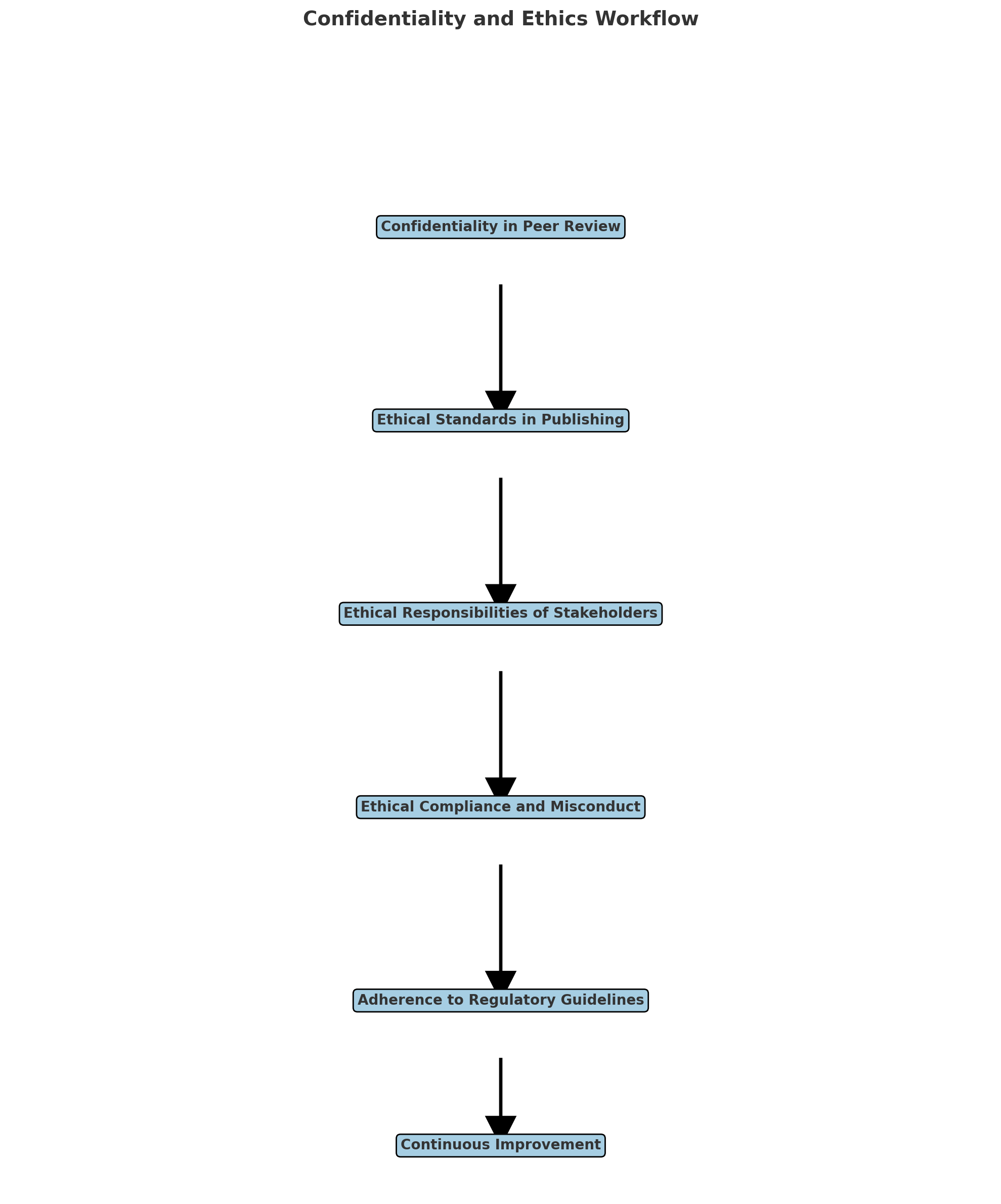Confidentiality and Ethics
The Global Journal of Medical and Clinical Case Reports (GJMCCR) upholds the highest standards of confidentiality and ethical practices throughout the publication process. These principles are in strict alignment with the guidelines established by globally recognized bodies such as the Committee on Publication Ethics (COPE) and the International Committee of Medical Journal Editors (ICMJE). By maintaining transparency, integrity, and accountability, the journal ensures that the confidentiality of authors, reviewers, and editors is protected, and ethical responsibilities are fulfilled.
1. Confidentiality in Peer Review
GJMCCR employs a double-blinded peer-review process, where both authors and reviewers remain anonymous. This ensures impartiality and fairness in the evaluation of submitted manuscripts. The following confidentiality principles apply:
1. Reviewer Confidentiality: All reviewers are required to maintain strict confidentiality regarding the content and authorship of the manuscript. Reviewers must not discuss or share the manuscript, its findings, or any related information with others without explicit permission from the journal.
2. Editorial Confidentiality: Editors and editorial staff must handle all submissions and associated correspondence with the utmost confidentiality. Manuscript details are disclosed only to those directly involved in the editorial or review process.
3. Author Confidentiality: Author identities are protected during the review process. Post-publication, sensitive information, including patient or institutional data, is safeguarded as per ethical standards and privacy laws.
2. Ethical Standards in Publishing
GJMCCR is committed to ethical publishing practices and adheres to the following principles:
1. Authorship Transparency: Only individuals who have made substantial contributions to the manuscript are granted authorship. Any instances of ghostwriting, honorary authorship, or plagiarism are strictly prohibited and addressed in line with COPE guidelines.
2. Data Integrity: All submitted data must be accurate, authentic, and free from manipulation or fabrication. Authors are required to retain original data and provide it upon request for verification purposes.
3. Patient Confidentiality: For clinical case reports, authors must ensure patient confidentiality by anonymizing all identifying details. Authors must obtain informed consent from patients or their legal guardians, and a statement confirming consent must be included in the manuscript.
4. Conflict of Interest: Authors, reviewers, and editors must disclose any potential conflicts of interest to ensure transparency and avoid bias during the review and decision-making process.
3. Ethical Responsibilities of Stakeholders
GJMCCR emphasizes the ethical responsibilities of all participants in the publishing process:
1. Authors: Authors must ensure their work is original and free from ethical violations. They must acknowledge contributions and funding sources, and comply with all ethical standards for research and publication.
2. Reviewers: Reviewers are expected to provide objective, constructive, and timely feedback. They must avoid conflicts of interest and disclose any ethical concerns regarding the manuscript to the editor.
3. Editors: Editors are responsible for ensuring the integrity of the review process. They must handle submissions ethically, address potential conflicts of interest, and take prompt action against any ethical breaches.
4. Ethical Compliance and Misconduct
The journal strictly monitors compliance with ethical standards. Any suspected ethical misconduct is thoroughly investigated, and appropriate actions are taken, including:
1. Rejecting manuscripts with evidence of plagiarism, data manipulation, or unethical practices.
2. Notifying relevant institutions or regulatory bodies in cases of serious ethical breaches.
3. Issuing corrections, retractions, or expressions of concern for published articles found to have ethical violations.
Authors, reviewers, and editors are encouraged to report ethical concerns confidentially to the editorial team at any stage of the publication process.
5. Adherence to Regulatory Guidelines
As an open-access journal, GJMCCR adheres to the guidelines established by regulatory organizations such as COPE and the Directory of Open Access Journals (DOAJ). The journal’s ethical policies ensure:
1. Compliance with international best practices for research ethics and publication.
2. Protection of intellectual property rights while providing unrestricted access to scholarly content.
3. Alignment with Creative Commons licensing policies, ensuring proper attribution and sharing of published content.
6. Continuous Improvement
The journal continuously reviews and updates its confidentiality and ethics policies to align with advancements in ethical publishing practices. Regular training sessions are conducted for editors, reviewers, and authors to enhance awareness of ethical responsibilities. By fostering a culture of accountability and integrity, GJMCCR aims to maintain its reputation as a trusted and ethical publication platform.

